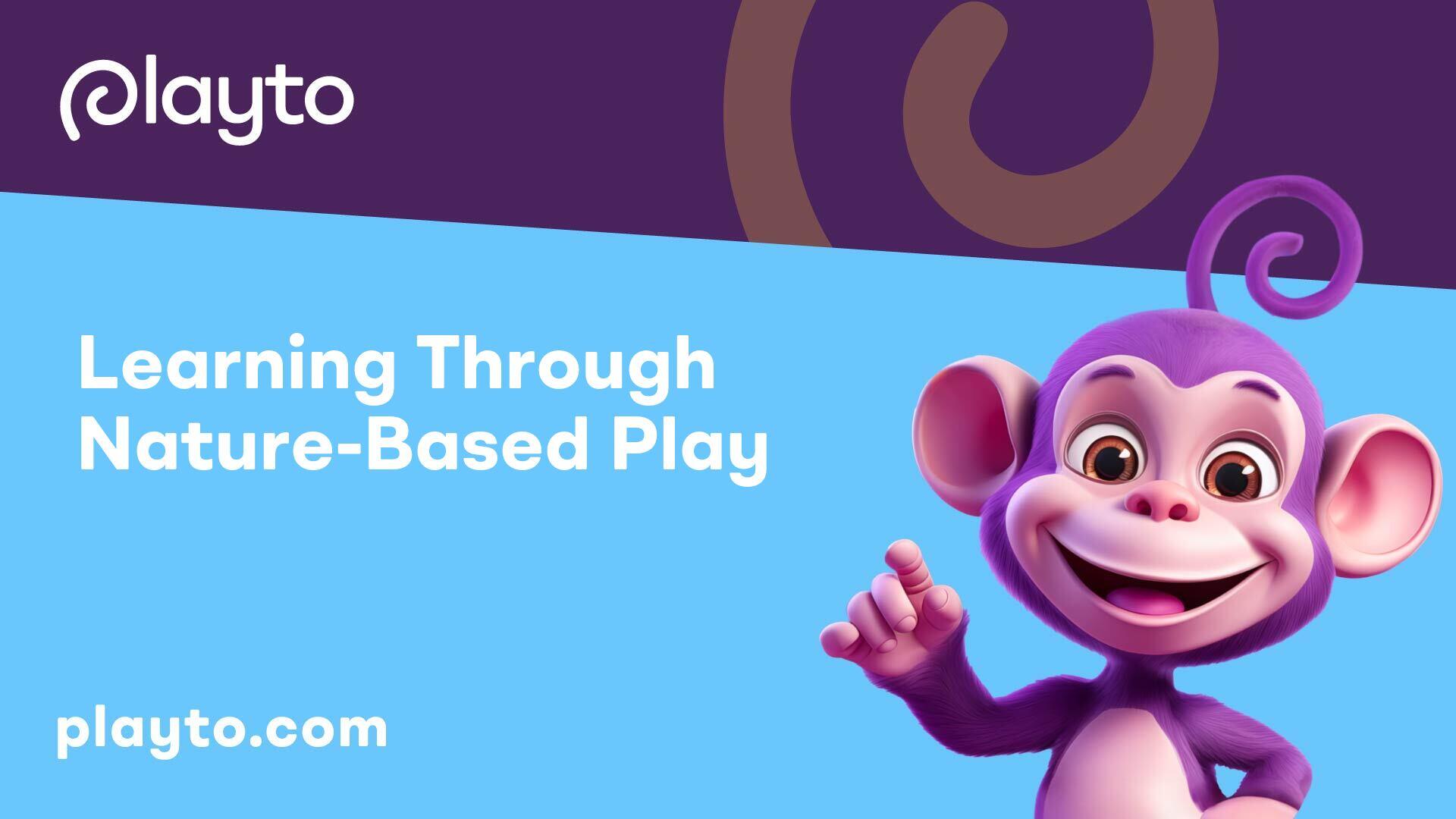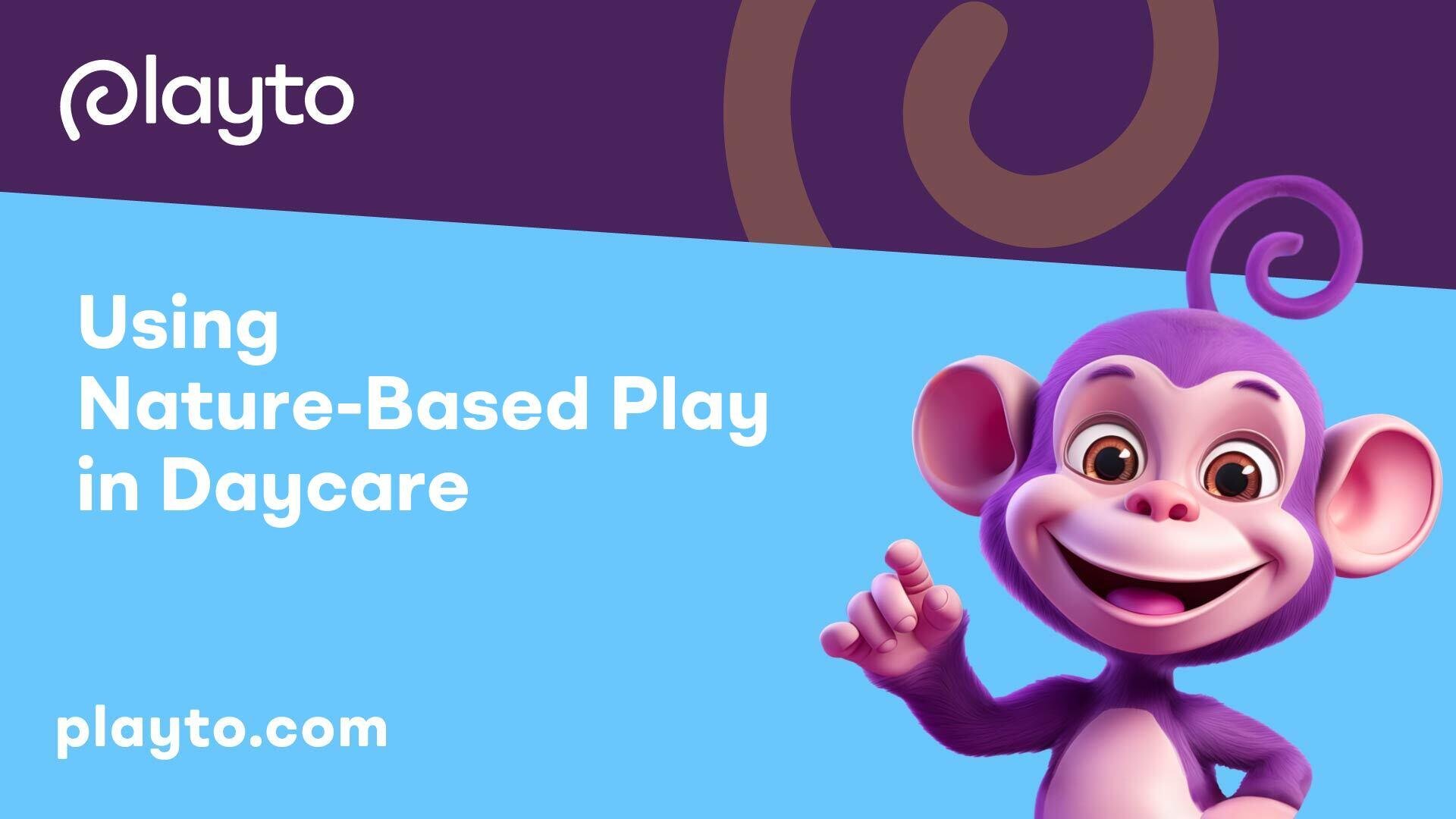
Benefits of Nature-Based Play
Exploring the advantages of incorporating nature-based play in daycare settings reveals significant benefits in terms of physical development and sensory experiences.
Enhancing Physical Development
Engaging in nature-based play offers a myriad of opportunities for children to enhance their physical development. Activities such as climbing trees, balancing on uneven terrains, and running in open spaces help strengthen muscles and improve coordination. The exposure to natural elements also encourages children to engage in active play, leading to better gross motor skills development.
By interacting with different textures, surfaces, and structures found in nature, children can refine their fine motor skills. For example, playing with materials like sand and water tables not only stimulates creativity and imagination but also supports fine motor skills development [1]. By offering a diverse range of materials and experiences that challenge children's skills and abilities, caregivers can effectively support physical development in a nurturing and engaging environment.
Stimulating Sensory Experiences
Nature-based play creates a sensorial-rich environment that stimulates children's senses, contributing to their overall learning and development. Sensory experiences play a crucial role in strengthening brain cell connections, facilitating learning processes, and enhancing cognitive development. From touching and tasting to smelling and hearing, children learn about the world around them through their senses.
By immersing in nature-based play, children have the opportunity to explore a variety of sensory stimuli, such as the feel of grass beneath their feet, the smell of flowers, or the sound of rustling leaves. These experiences not only foster a deeper connection with the natural world but also support sensory processing and integration, crucial for children's cognitive and emotional development.
Incorporating nature-based play in daycare settings not only promotes physical development and sensory exploration but also cultivates a deeper appreciation for the environment and encourages a sense of wonder and curiosity in young minds. By providing a holistic approach to learning through nature play, children can develop essential skills, creativity, and resilience that will benefit them both in their early years and beyond.

Importance of Outdoor Play
In the realm of daycare, the significance of outdoor play cannot be overstated when considering the benefits it brings to children. Partaking in nature-based play in daycare not only offers a myriad of physical advantages but also nurtures cognitive, emotional, and social well-being. Two key aspects that stand out when discussing the importance of outdoor play are its propensity to encourage imagination and promote stress reduction.
Encouraging Imagination
Research from Virtual Lab School underscores that children who engage in regular outdoor play are more likely to possess active imaginations. Interacting with the natural world opens up avenues for imaginative play scenarios, fostering creativity and exploration. Outdoor environments stimulate curiosity and the innate sense of wonder in children, allowing them to invent stories, create make-believe worlds, and enhance their problem-solving skills through imaginative play.
The exposure to diverse natural elements such as trees, plants, and various textures offers endless possibilities for children to use their creativity and envision fantastical scenarios. This free play encourages children to think outside the box, invent new narratives, and engage in creative expression, all of which are essential for holistic development.
Promoting Stress Reduction
As highlighted by Tribe Early Learning, immersing children in nature-based play environments has been associated with reduced stress levels. The calming influence of outdoor settings, coupled with the freedom to explore, encourages a sense of tranquility and relaxation in children. This contrast to indoor environments with structured activities allows children to unwind, recharge, and process their emotions in a natural and peaceful setting.
Outdoor play offers children the opportunity to escape the confines of traditional indoor spaces, promoting a sense of freedom and connection to the natural world. The varied sensory experiences provided by outdoor play, such as feeling the warmth of the sun, hearing the rustling of leaves, and smelling the earthy scents of nature, contribute to a soothing environment that aids in stress reduction and emotional regulation.
By recognizing the profound impact of outdoor play on imagination and stress reduction, daycare settings can harness the transformative power of nature to nurture children's creativity, emotional well-being, and overall development.

Learning Through Nature-Based Play
Incorporating nature-based play in daycare settings offers a myriad of benefits beyond just physical activity. This section focuses on the intellectual stimulation and emotional wellbeing fostered by engaging in nature-based play experiences.
Intellectual Stimulation
Nature-based play in daycare settings provides children with authentic learning experiences that stimulate intellectual growth [2]. It encourages creativity, critical thinking, and problem-solving skills as children interact with the natural world. By exploring outdoor environments, children have the opportunity to question, reason, and create hypotheses, nurturing inquisitive minds and fostering a sense of wonder.
Moreover, nature-based play offers a hands-on approach to learning, where children can engage all their senses to explore and understand the world around them. From observing plants and animals to feeling different textures, each interaction in a natural setting provides valuable opportunities for children to develop cognitive skills and expand their knowledge base.
Emotional Wellbeing
In addition to intellectual growth, nature-based play also plays a significant role in promoting emotional wellbeing among children. Studies have shown that exposure to nature and outdoor play can have a positive impact on children's emotional development and regulation. Nature-based environments create a sense of calm and tranquility, reducing stress and anxiety levels among children.
Moreover, spending time in nature allows children to connect with the natural world, fostering a sense of empathy, compassion, and respect for the environment and all living beings. This connection to nature is instrumental in enhancing children's emotional intelligence and overall mental well-being.
Through nature-based play, children not only develop important intellectual skills but also cultivate a deeper appreciation for the world around them, leading to enhanced emotional resilience and a greater sense of connectedness to nature. For more insights on supporting emotional regulation in preschoolers, check out our article on encouraging emotional regulation in preschoolers.
Social Development in Nature Play
Incorporating nature-based play in daycare settings goes beyond just fun activities; it plays a significant role in fostering social development among children. By immersing children in outdoor environments, daycare centers create opportunities for social interactions that are pivotal in the early stages of development.
Fostering Interactions
Participation in nature-based play offers a unique setting for children to engage in unstructured play with their peers. According to Tribe Early Learning, engaging in such activities promotes interactions among children, leading to the development of friendships, sharing, problem-solving, collaboration, empathy, and cooperative skills.
Outdoors, children are encouraged to explore and interact with the environment and each other, fostering a sense of camaraderie and teamwork. This environment often leads to spontaneous group play and encourages children to cooperate, communicate, and negotiate with one another, all essential skills for social development.
Building Social Skills
Nature-based play not only fosters interactions but also helps in building essential social skills that are fundamental for children's growth. As children navigate through natural settings, they learn to communicate effectively, resolve conflicts peacefully, and collaborate on tasks.
Engaging in outdoor play encourages children to be more expressive and cooperative in social settings. The exposure to different elements in nature sparks curiosity and encourages children to bond over shared experiences, thus enhancing their social development.
By promoting interactions and building social skills in a natural environment, daycare centers can create a nurturing space where children feel free to explore, express themselves, and cultivate meaningful relationships with their peers. Encouraging social development through nature-based play sets a strong foundation for children's future interpersonal interactions and emotional intelligence.
For more insights on nature-based play and its impact on learning and development, explore the benefits of introducing STEM learning in daycare and how multilingual education in daycare can enhance children's overall growth and social adaptability.
Play-Based Activities
Engaging children in play-based activities is an essential component of early childhood education, fostering creativity, imagination, and cognitive development. In daycare settings, incorporating art and craft exploration, as well as drama and storytelling, can offer a wealth of benefits for young learners.
Art and Craft Exploration
Art and craft activities provide preschoolers with a creative outlet to express themselves and explore their artistic abilities. By using crayons, paints, playdough, clay, scissors, glue, and paper, children can experiment with texture, space, and colors, all while honing their fine motor skills. These activities often involve incorporating basic shapes like squares, triangles, and circles, allowing children to learn about geometric forms in a hands-on and engaging manner.
According to the Raising Children Network, art and craft exploration are ideal for preschoolers as they stimulate imagination and encourage self-expression. Additionally, these activities promote sensory experiences, helping children develop their senses and fine-tune their coordination skills.
Drama and Storytelling
Drama and storytelling can captivate the imagination of preschoolers, offering them the opportunity to immerse themselves in creative narratives and role-play scenarios. Through dramatic play and storytelling, children can build vocabulary, enhance communication skills, and develop an understanding of story structure.
By acting out different roles and exploring various characters, children can cultivate empathy and emotional intelligence. For instance, portraying a caring nurse in a pretend medical scenario can teach children about compassion and empathy towards others.
As highlighted by the Raising Children Network, drama and storytelling activities in daycare settings enable children to engage in imaginative play, fostering cognitive development and social interaction. These activities also support language development and creativity, providing a well-rounded approach to early childhood education.
Incorporating art and craft exploration, as well as drama and storytelling, into the daily routine of daycare programs can spark children's curiosity, enhance their learning experiences, and nurture their creativity. By offering a diverse range of play-based activities, educators can create a stimulating and enriching environment that promotes holistic development in young learners.
Creative Expression Through Music
Integrating music into daycare activities offers children a creative outlet for self-expression and learning. Music engages children in various ways, fostering both physical movement and imaginative play. In this section, we will explore the role of music in creative expression within daycare settings, focusing on singing and movement, as well as promoting diversity in play.
Singing and Movement
Preschoolers are naturally inclined to enjoy singing, recognizing favorite songs, and even creating their own lyrics to tunes. This engagement with music not only enhances their creative development but also introduces them to concepts such as fast/slow, long/short, high/low, and loud/soft [3].
Encouraging children to move and dance to music allows them to express themselves physically and emotionally. Through movement, children can convey joy, excitement, or even frustration. This physical engagement with music provides a constructive outlet for expressing their energy and emotions [3].
ConceptDescriptionFast/SlowMoving quickly or slowly in response to the tempo of the musicHigh/LowReaching upwards or downwards based on the pitch of the musicLoud/SoftAdjusting the volume of movement in accordance with the music
Diversity in Play
Incorporating diversity in music and play activities is essential for children's holistic development. Encouraging children to engage with music, stories, and songs from a variety of cultures and languages helps them appreciate diversity and understand different backgrounds. This exposure fosters inclusivity, promotes tolerance, and helps children avoid stereotypes.
Through diverse play experiences, children have the opportunity to explore various roles, dress-ups, and cultural elements. This not only expands their creativity but also broadens their understanding of equality and acceptance. By embracing diversity in play, children learn to appreciate and respect the differences among individuals, fostering a more inclusive and harmonious daycare environment.
Incorporating diverse music, stories, and cultural elements into daycare activities enriches children's play experiences, encourages empathy and understanding, and nurtures a sense of belonging and unity among all participants. By promoting diversity in play, daycare settings can become vibrant and inclusive spaces where children can learn, grow, and express themselves freely.
Implementing Nature-Based Learning
When it comes to using nature-based play in daycare, educators play a vital role in creating an enriching and safe environment for children to explore and learn. Additionally, ensuring safety measures are in place is paramount to providing a secure setting for young learners to engage in nature-based activities.
Educator's Role
Teachers serve as mediators between children and the natural world during play, enriching their play environment and facilitating learning experiences. While there may be varying opinions on the extent of adult involvement in children's play activities (NCBI), educators are instrumental in maximizing opportunities for children to choose materials, playmates, topics, and approaches that align with their interests and developmental stages.
Educators support and extend children's play experiences by carefully observing their choices and providing materials and resources that enhance their learning and exploration. By planning the environment, schedule, and daily activities thoughtfully, teachers can promote each child's development and learning across all domains, ensuring a stimulating and engaging educational experience.
Safety Measures
Safety is a top priority when implementing nature-based learning in daycare settings, especially when infants and toddlers are involved. Diligent supervision is essential to prevent injuries, particularly when children engage with materials like water or sand, which they often explore with their hands and mouths.
Educators must ensure that the outdoor play area is secure, free from hazards, and age-appropriate for the children in their care. Properly maintained equipment, adequate fencing, and soft ground coverings can help minimize the risk of accidents. Additionally, teachers should be trained to identify potential safety risks and respond promptly to any emergencies that may arise during nature-based play activities.
By actively engaging in children's play, providing enriching learning experiences, and prioritizing safety, educators can create a nurturing environment where young learners can thrive and explore the wonders of nature within the daycare setting.
Nature-Based ECE Benefits
Exploring the benefits of incorporating nature-based play in Early Childhood Education (ECE) settings reveals significant advantages for both development outcomes and emotional wellbeing.
Improving Development Outcomes
Nature-based ECE programs have shown promise in enhancing various childhood development outcomes, including self-regulation, social skills, nature-relatedness, and play interactions. Research highlights that exposure to natural elements like trees, varied topography, and vegetation can provide additional benefits compared to traditional ECE settings that predominantly feature man-made structures in playgrounds.
These outcomes play a crucial role in nurturing holistic child development by fostering skills that are essential for social interactions, emotional regulation, and cognitive growth. Children engaged in nature-based ECE programs often demonstrate improved resilience, self-esteem, and a heightened awareness of nature, contributing to their overall well-being and development.
Emotional Wellbeing Effects
Nature-based ECE environments have been linked to positive emotional wellbeing effects on children. Exposure to nature within these settings can lead to improvements in mental health, resilience, self-esteem, and stress reduction. Research indicates that children benefit from reduced stress levels and increased emotional resilience when engaged in nature-based play experiences [5].
These emotional wellbeing effects are essential for supporting children's overall mental and emotional health, providing them with a nurturing and supportive environment that encourages positive emotional growth and self-discovery. Nature-based ECE not only offers a platform for play, socializing, and creativity but also fosters a deeper connection with nature, promoting emotional stability and well-being among young learners.
References
[1]: https://www.virtuallabschool.org/infant-toddler/physical-development/lesson-3
[2]: https://www.tribeearlylearning.com.au/why-nature-based-play-is-great-for-children-in-daycare/
[3]: https://raisingchildren.net.au/preschoolers/development/creative-development/preschooler-creative-activities
[4]: https://www.naeyc.org/resources/position-statements/dap/enhance-development
[5]: https://www.ncbi.nlm.nih.gov/pmc/articles/PMC9142068/
